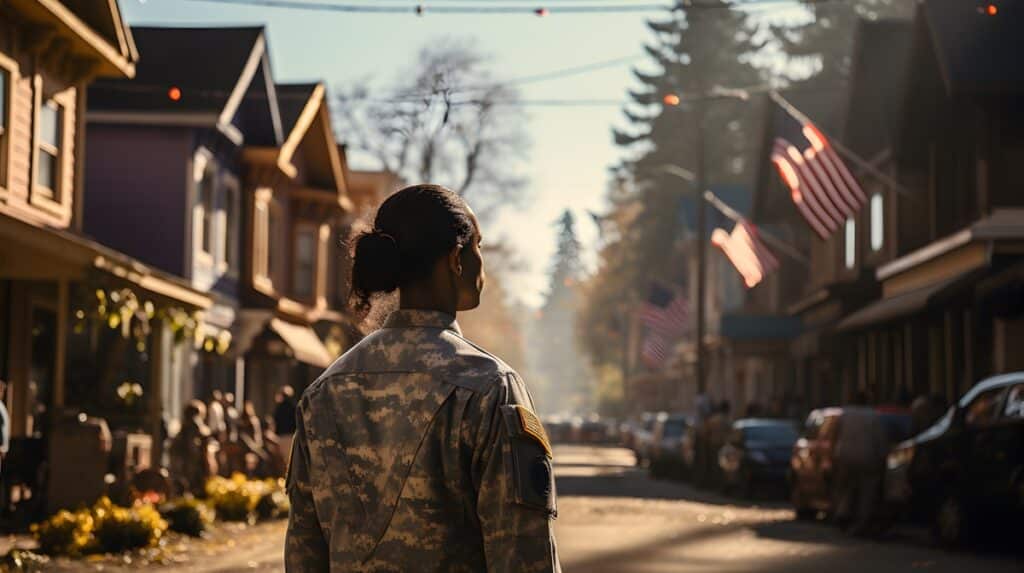Navy Federal Credit Union, in partnership with Sperling’s BestPlaces, released the “2024 Best Cities After Service” list—a report designed to help military servicemembers, veterans, and their families make a smooth transition to civilian life by evaluating the pros and cons of U.S. cities where they may consider settling down. From coastal and midwestern locations, to warm and cold climates and big cities and small towns, the Best Cities After Service report has options for everyone.
More than 200,000 servicemembers transition out of active-duty status each year, and research shows that veterans face hurdles achieving their own financial goals due to high costs of living, inflation and housing burdens. At the same time, financial opportunities motivate many veterans to use the skills they developed during service to start their own businesses, pursue their passions, and earn a comfortable living in the long term.
A report from the HAI Group—a member-owned organization founded by, and dedicated to serving, the public and affordable housing communities—found that today, U.S. veterans face similar challenges to the ones seen in 1945. Challenges are particularly high for post-9/11 veterans, who are 5% less likely to be able to afford housing compared to their civilian peers, even after controlling for wages, household size, and housing market.
“When you leave military service, finding a home, starting a new career and making a financial plan are daunting steps,” said Clay Stackhouse, a retired Marine Corps colonel and Regional Outreach Manager at Navy Federal. “This unique population of individuals has diverse needs, so it’s more important than ever for us to provide tools and resources that support them through all aspects of the transition to the civilian world.”
Ranking the Cities
For the report findings, Navy Federal, which serves more than two million veteran members, worked with Sperling’s BestPlaces to evaluate and rank 400 cities across the nation based on a suite of aggregate quality-of-life measures from the Bureau of Labor Statistics (BLS), such as:
- Veteran success and wellness (community of veterans, veteran income, veteran-owned businesses, proximity to VA hospitals, and military bases to serve as resources)
- Affordability (taxes, housing costs)
- Economic health (unemployment, income change, home price appreciation)
- Climate, environmental health (healthy air and water), and national hazard risk
- Recreational opportunities (trails, sports, zoos, aquariums) and proximity to amenities, arts, and culture
- Crime rate
- Community diversity and population change
- Proximity to airports
- Quality of schools
- Health resources
“More than ever, choosing the right place to live can be the springboard for success and happiness,” said Bert Sperling, Founder and CEO of Sperling’s BestPlaces. “Tailored for veterans and their families, these rankings are an important resource in finding a new place to call home.”
Top 10 Best Cities After Service
- Sarasota, Florida
- Norwich, Connecticut
- Derry, New Hampshire
- Omaha, Nebraska
- Portland, Maine
- Virginia Beach, Virginia
- Sebastian, Florida
- Oklahoma City, Oklahoma
- Duluth, Minnesota
- Rapid City, South Dakota
Best Cities for Retired Veterans
- Sarasota, Florida
- Derry, New Hampshire
- Tampa, Florida
- Duluth, Minnesota
- Norwich, Connecticut
Best Cities for Veterans to Buy a House
- Altoona, Pennsylvania
- Abilene, Texas
- Muncie, Indiana
- El Paso, Texas
- Mansfield, Ohio
Best Cities for Veterans to Start a Business
- Coeur d’Alene, Idaho
- Johnson City, Tennessee
- Bend, Oregon
- Logan, Utah
- Wichita Falls, Texas
Best Small Towns for Veterans
- Glens Falls, New York
- Ames, Iowa
- Mankato, Minnesota
- La Crosse, Wisconsin
- Manhattan, Kansas





